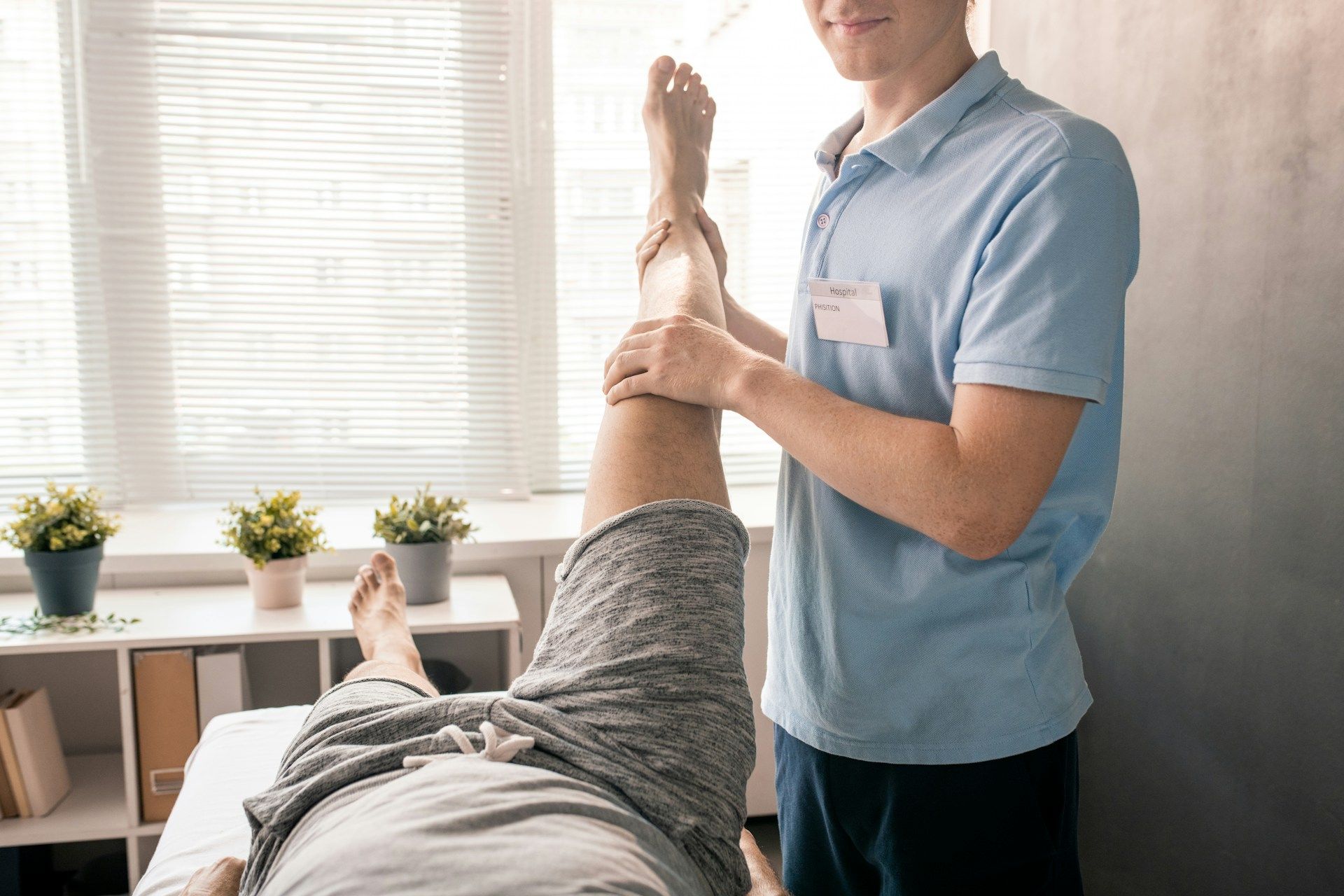Easing Phantom Limb Pain with Medication Management
Phantom limb pain is a distressing condition that many people experience after losing a limb. Even though the limb is no longer there, the pain feels very real. This can make everyday activities challenging and affect your mood. Understanding why this pain happens is the first step in finding ways to ease it.
The pain usually comes from the nerves that once sent signals from the lost limb to the brain. These nerves can still misfire and send pain signals even though the limb is gone. The brain’s memory of the limb can also play a role, leading to sensations that seem to come from the missing limb.
Medication management is a key part of treating phantom limb pain. By using the right medications, you can reduce the pain and improve your quality of life. Different types of medication work in various ways, and sometimes a combination of treatments is the best approach. This article will explore the types of medications commonly used for phantom limb pain and how combining them can offer better relief. We will also share lifestyle tips that can help complement your medication plan, making it easier to manage the pain and get back to doing the things you enjoy.
Understanding Phantom Limb Pain: Causes and Symptoms
Phantom limb pain occurs when someone feels pain in a limb that has been amputated. The pain can feel like burning, cramping, or stabbing. Even though the limb is not there, the pain is very real and can be quite severe. This pain comes from the nerves that used to carry signals from the missing limb. When these nerves still send pain signals to the brain, people feel pain where the limb used to be.
Some people also experience other sensations, like tingling, itching, or warmth. These are called phantom sensations. The brain’s memory of the limb can cause these feelings, even long after the limb is gone. It can be hard to understand this type of pain, but knowing what causes it can help us figure out the best ways to manage it.
Different factors can make phantom limb pain worse. Stress, tiredness, and changes in weather can all trigger pain episodes. Sometimes, the pain can be constant. Understanding these triggers is an important part of managing the pain. By learning more about what causes phantom limb pain, we can find better ways to treat it and help people feel more comfortable.
Common Medications Used for Phantom Limb Pain
There are several kinds of medications that can help with phantom limb pain. The first type is pain relievers, which are often the most common. Over-the-counter painkillers like acetaminophen or ibuprofen can help with mild pain. For more severe pain, doctors might prescribe stronger painkillers like opioids. These medications can help block pain signals and make daily activities easier.
Antidepressants are another type of medication used to treat phantom limb pain. They are not just for treating depression. Some antidepressants can help manage pain by affecting the chemicals in the brain that send pain signals. These medications can also help improve sleep, which is important for people dealing with chronic pain.
Anticonvulsants, normally used to treat epilepsy, can also be effective. These medications help control nerve pain by calming overactive nerves. By reducing the nerve activity that causes pain, anticonvulsants can make a big difference in managing phantom limb pain.
Sometimes, a combination of these medications works best. It’s important to talk with your doctor to find the right mix of treatments for your needs. Each person’s pain is different, so finding the best medication plan can take some time and adjustment.
Combining Medications for Improved Pain Relief
Sometimes, a single medication is not enough to control phantom limb pain. In these cases, combining different types of medications can be more effective. For example, using an opioid for pain relief alongside an antidepressant can provide better overall control of pain. This combination helps tackle pain from different angles, making it more manageable.
When combining medications, it’s important to work closely with a doctor. They can adjust dosages and monitor for side effects. Some medications can cause unwanted effects when taken together, so professional guidance is crucial. Regular check-ins with your doctor help ensure that the medication plan continues to be safe and effective.
Medication combinations can include pain relievers, antidepressants, anticonvulsants, and even topical treatments. Each type of medication targets different aspects of pain, providing a more comprehensive approach to treatment. By using multiple methods, you can get better results and enjoy a higher quality of life despite the challenges of phantom limb pain.
Lifestyle Tips to Complement Medication Management
While medications are important, there are also lifestyle changes that can help ease phantom limb pain. Staying active is one of the best ways to manage pain. Gentle exercises like walking, swimming, or biking can improve overall health and reduce pain levels. Physical activity also helps release endorphins, which are natural painkillers produced by the body.
Relaxation techniques can also be very helpful. Practices like deep breathing, meditation, and yoga can reduce stress and make pain more bearable. When you feel less stressed, your body has an easier time managing pain. These techniques can be done at home and added to your daily routine.
Good sleep is another key part of managing phantom limb pain. Make sure to have a comfortable sleep environment and follow a regular sleep schedule. Poor sleep can make pain worse, so it's important to get enough rest. Avoid caffeine and electronics before bed to improve sleep quality.
Eating a healthy diet full of fruits, vegetables, lean proteins, and whole grains can also support overall health and well-being. Adequate nutrition helps the body heal and may reduce inflammation, which can contribute to pain. Hydration is equally important, so drink plenty of water throughout the day.
Conclusion
Managing phantom limb pain can be challenging, but with the right approach, it is possible to find relief. Understanding the causes and symptoms of phantom limb pain is the first step. Medications play a crucial role in treatment, and sometimes combining different meds offers the most effective pain control. Working closely with a healthcare provider ensures a safe and tailored medication plan.
Alongside medications, lifestyle changes can make a big difference. Regular exercise, relaxation techniques, good sleep, and a healthy diet all contribute to managing pain effectively. By combining medical treatment with these lifestyle adjustments, you can achieve better control over phantom limb pain and improve your quality of life.
If you’re struggling with phantom limb pain, our team at Apollo Spine and Pain Center is here to help. We specialize in creating personalized treatment plans that address your unique needs. Contact us today to start your journey towards better pain
medication management.












